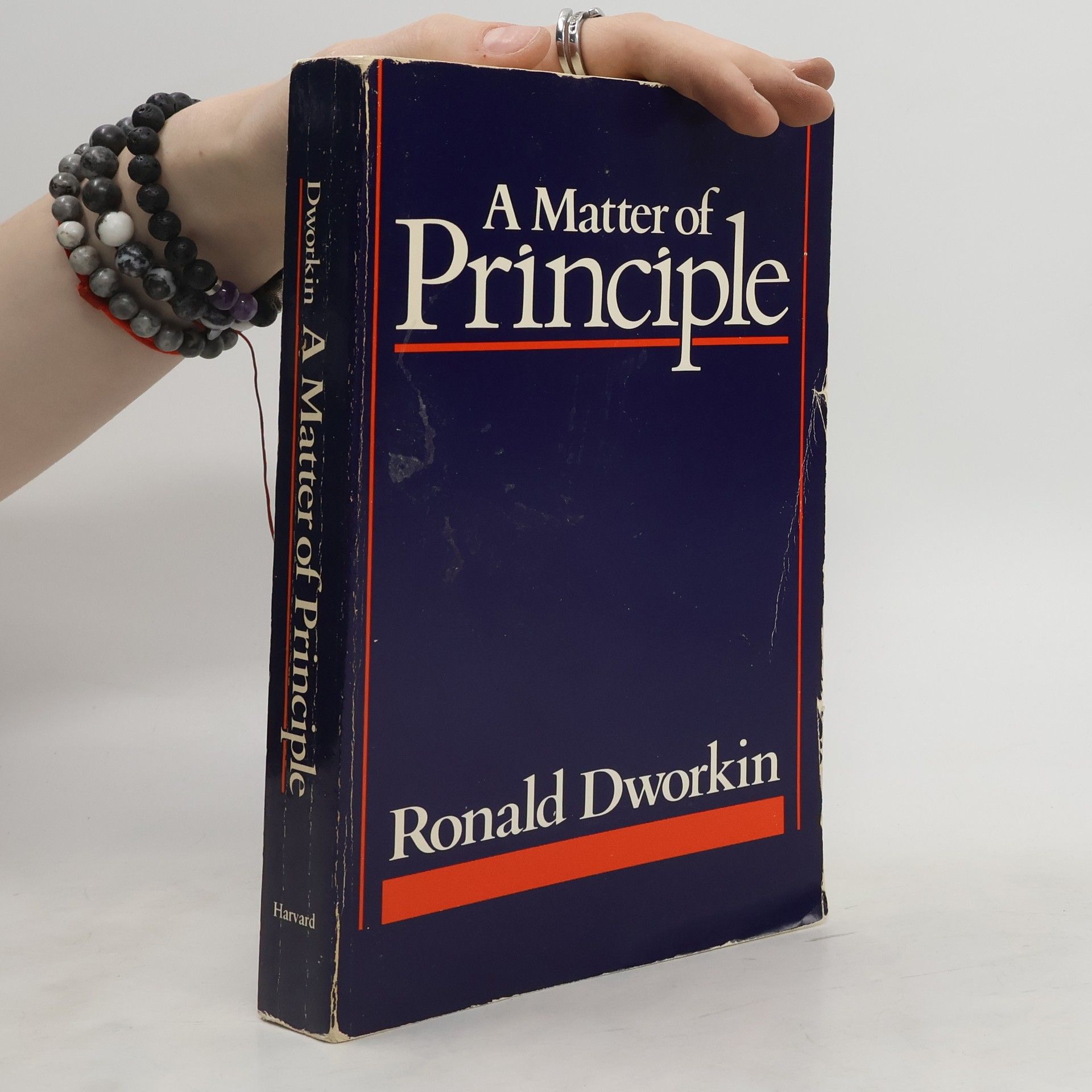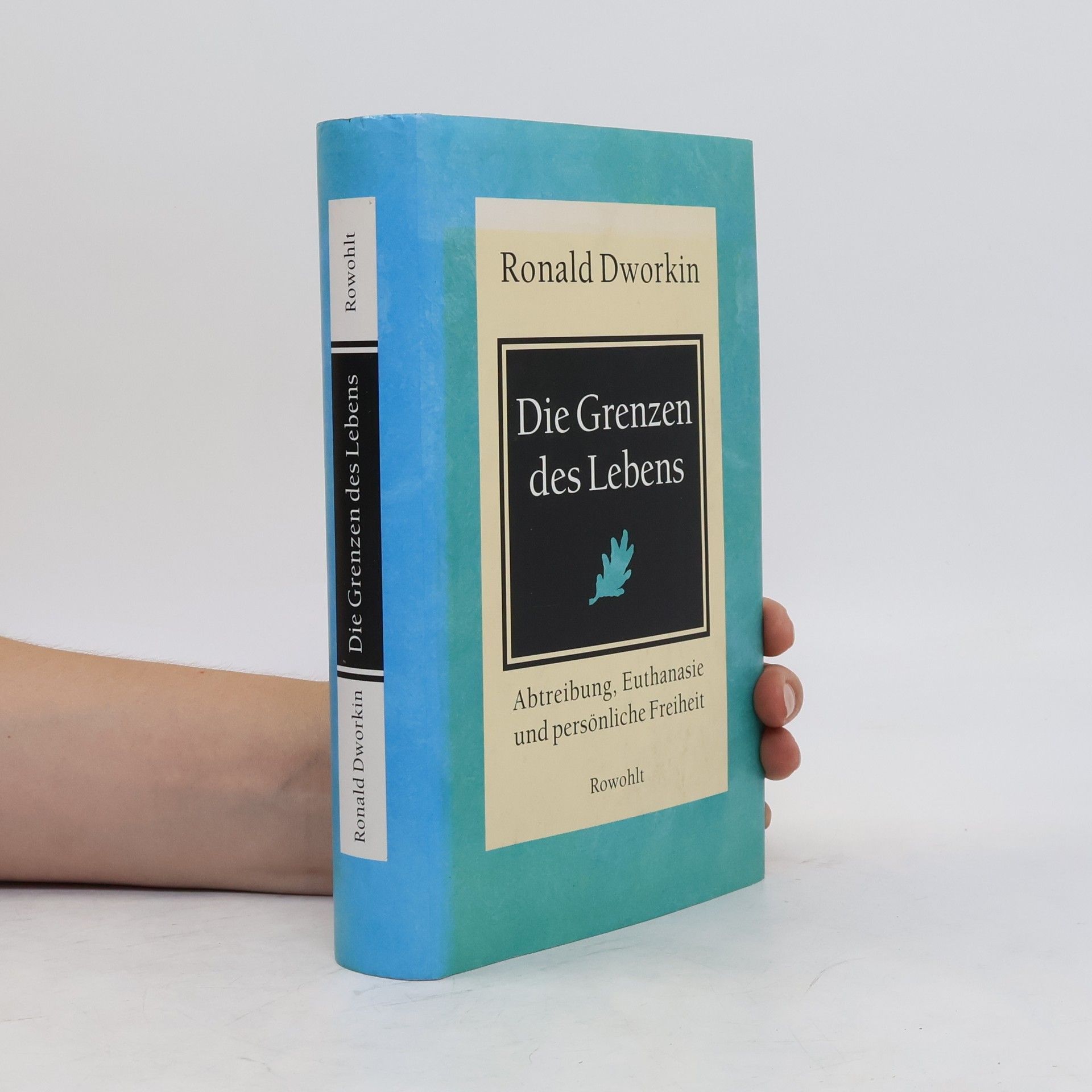The fox knows many things, the Greeks said, but the hedgehog knows one big thing. In his most comprehensive work, Ronald Dworkin argues that value in all its forms is one big thing: that what truth is, life means, morality requires, and justice demands are different aspects of the same large question. He develops original theories on a great variety of issues very rarely considered in the same book: moral skepticism, literary, artistic, and historical interpretation, free will, ancient moral theory, being good and living well, liberty, equality, and law among many other topics. What we think about any one of these must stand up, eventually, to any argument we find compelling about the rest. Skepticism in all its forms—philosophical, cynical, or post-modern—threatens that unity. The Galilean revolution once made the theological world of value safe for science. But the new republic gradually became a new empire: the modern philosophers inflated the methods of physics into a totalitarian theory of everything. They invaded and occupied all the honorifics—reality, truth, fact, ground, meaning, knowledge, and being—and dictated the terms on which other bodies of thought might aspire to them, and skepticism has been the inevitable result. We need a new revolution. We must make the world of science safe for value.
Ronald M. Dworkin Livres
Ronald Dworkin fut un philosophe du droit américain dont les œuvres influentes ont façonné le débat contemporain en droit et en philosophie politique. Sa théorie du droit comme intégrité constitue l'une des conceptions les plus significatives de la nature du droit. Dworkin s'est penché sur de profondes questions de justice et d'interprétation, laissant une marque indélébile dans la pensée juridique. Son approche a mis l'accent sur les fondements éthiques des systèmes juridiques et leur connexion avec les idéaux politiques.







A Matter of Principle
- 480pages
- 17 heures de lecture
This is a book about the interplay of urgent political issues and hotly debated questions of moral philosophy. The controversies it joins are old; but history has given them fresh shape. Dworkin addresses questions about the Anglo-American legal system as protector of individual rights and as machinery for furthering the common good.
Law's Empire
- 484pages
- 17 heures de lecture
Law's Empire provides a judicious and coherent introduction to the place of law in our lives.
Is Democracy Possible Here?
- 192pages
- 7 heures de lecture
Politics in America are more polarized and trivialized than ever, with fierce battles between the right and left resembling contact sports. This deeply depressing political culture, as noted by Ronald Dworkin, is ill-equipped to tackle social justice or emerging threats like terrorism. Yet, can hope for change emerge? Dworkin, a prominent legal and political philosopher, identifies core principles of personal and political morality that can unite citizens. He argues that recognizing these shared principles can foster substantial political discourse and replace contempt with mutual respect, enabling democracy's full promise to be realized. The two core principles he emphasizes are: first, the intrinsic and equal value of each human life; and second, the inalienable personal responsibility of individuals to identify and realize value in their lives. Dworkin explores the implications of these principles for human rights, the role of religion in public life, economic justice, and the essence of democracy. He posits that liberal conclusions naturally arise from these principles, which challenge the goals of religious conservatives and current tax and social policies, as well as aspects of the War on Terror. Ultimately, Dworkin aims to persuade Americans across the political spectrum—and citizens of similar cultures worldwide—that they can and must defend their convictions through their interpretations of these shared values.
Když se práva berou vážně
- 455pages
- 16 heures de lecture
Dnes klasické dílo právní a politické filosofie je ucelenou studií o lidských právech a liberálním pojetí právního státu. Dworkin předestírá své teze o přirozenoprávním konceptu a staví se do opozice vůči konceptu pozitivněprávnímu (především proti svému předchůdci na stolici právní vědy v Oxfordu H. L. A. Hartovi).
Ríša práva
- 536pages
- 19 heures de lecture
Ríša práva, ktorá je jednou z najdôležitejších prác v rámci filozofie práva, sa po prvý raz dostáva k čitateľom v slovenskom preklade Dezidera Kamhala. Popredný americký filozof Ronald Dworkin v nej predstavuje svoju teóriu morálneho odôvodnenia práva, ktorá spája či prepája osobnú morálku, právne zdôvodnenie a politickú legitimitu. Ponúka tak odpoveď na otázku ako chápať právo a zároveň ponúka politickú teóriu, ktorá zdôvodňuje takéto chápanie práva. Slovenské vydanie knihy dopĺňa aktuálny doslov Alexandra Bröstla.
Das Zentrum wahrer Religiosität, so der bekennende Atheist Albert Einstein, sei die Ehrfurcht vor den Mysterien des Universums, deren höchste Weisheit wir nur rudimentär begreifen können. In diesem Sinne bezeichnete er sich als tiefreligiös. Doch was ist religiös an einer Haltung, in der Gott keine Rolle spielt? Ronald Dworkin beschäftigte sich in seinen Einstein-Vorlesungen mit dieser Frage. Er definiert Religion als eine Sicht auf die Welt, die von einem tiefen Glauben an objektive Werte getragen wird – etwa an die Würde der Geschöpfe, die Erfüllung oder das Versagen eines Lebens und die unerklärliche Schönheit, die über unsere Sinnesorgane hinausgeht. Theisten teilen diese Werte, glauben jedoch, dass sie gottgegeben sind. Dworkin hingegen argumentiert, dass die Idee eines Gottes aus der Existenz dieser Werte hervorgeht. Der Glaube an Gott ist eine Möglichkeit, dies auszudrücken, aber nicht die einzige. Das Buch erkundet den Perspektivwechsel, der mit einem gottlosen Verständnis von Religion verbunden ist, und reicht von Physik über Politik bis zum Recht. Es schließt mit einer eindrucksvollen Reflexion über Tod und Unsterblichkeit und präsentiert das Vermächtnis eines bekennenden religiösen Atheisten, der den Blick für das Wesentliche weitet.
Książka stanowi syntezę poglądów Ronalda Dworkina (1931–2013) – filozofa prawa i polityki, krytyka pozytywizmu prawniczego. Zdaniem autora prawo nie jest wyłącznie zbiorem reguł, lecz połączeniem reguł, zasad moralnych i standardów, które stanowią moralnie spójną całość. Ta klasyczna obecnie pozycja z teorii prawa została opublikowana w oryginale w 1986 r. Pierwsza polska edycja Imperium prawa ukazała się w 2006 r. „Dworkin ma styl pisania bliski prawnikowi praktykowi, bo skupia się bardziej na kultywowaniu postawy argumentacyjnej wobec prawa niż na teoretyzowaniu. Nie oznacza to, że proponuje prawnikom postawę wartościującą wobec prawa, tak jak to czynią doktryny prawa natury. Dworkin podkreśla jedynie, że cały wysiłek jurysprudencji powinien być nakierowany na osądzanie (judgment), bo to jest problem, który przenika prawo i jego instytucje. Dla prawnika ważna jest tylko taka refleksja ogólna nad prawem, która pozwala mu dokonać lepszego osądu na podstawie prawa. Zadaniem jurysprudencji, czy wszelkiej ogólnej refleksji nad prawem, jeśli chce być ważna dla prawników, musi stać się proces argumentowania umożliwiający nadanie prawu najlepszego sensu jako swoistej praktyce społecznej”. Prof. dr hab. Marek Zirk-Sadowski, fragment Wprowadzenia
Susanne Höbel, geboren 1953 in Unna, studierte in Birmingham Literatur und übersetzte u. a. Nadine Gordimer, John Updike, William Faulkner, Thomas Wolfe und Graham Swift. Sie lebt in Hamburg und Südengland. Cornelia Holfelder-von der Tann, geboren 1950, beschloss nach dem Studium (Anglistik, Germanistik, Romanistik) und einem Lehramtsreferendariat, es mit dem literarischen Übersetzen zu probieren und ist seither hauptberuflich dabeigeblieben. 2021 wurde sie mit dem Übersetzerpreis für langjähriges Übersetzen, „Rebekka“, ausgezeichnet.
O slobode a spravodlivosti
- 256pages
- 9 heures de lecture
Zborník filozofov hlásiacich sa k liberalizmu.



